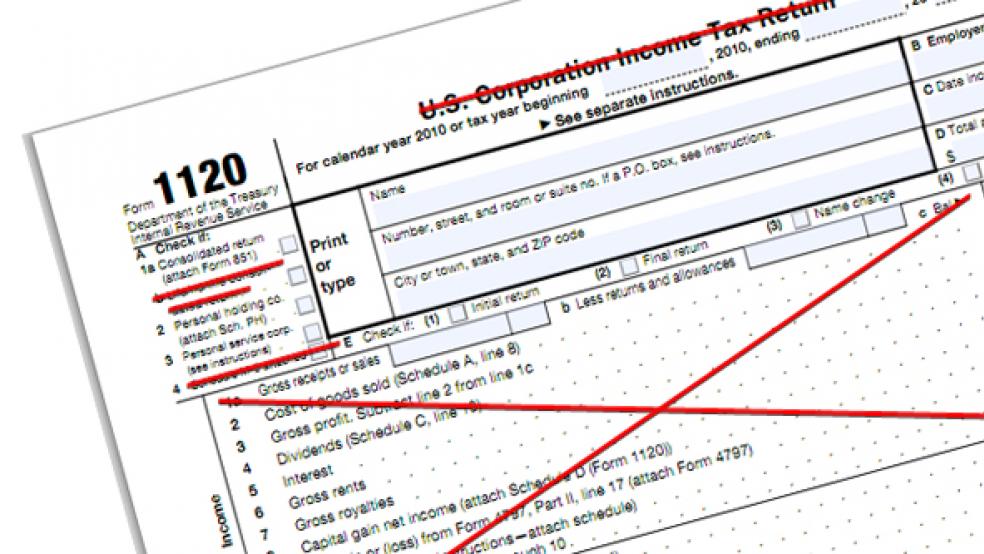Perhaps the most obvious take-away from Obama’s corporate tax overhaul is his administration’s desire tobuttress domestic manufacturing by castigating U.S. multinational firms who sock away income abroad for tax purposes.
Under the plan, companies accustomed to stashing profits earned overseas into various low-tax jurisdictions would be forced to pay a minimum tax on those profits, which The White House has yet to set. But senior officials pointed Wednesday to Japan’s system, which taxes companies' overseas profits at a minimum of 20 percent. Currently, a company can keep overseas profits abroad and pay no tax to the U.S. on that income.
Most industries, including oil and gas, will feel the burn of billions in lost tax breaks and could see their effective tax rates rise higher than they already are under the current system, although it’s unclear by how much. However, U.S. manufacturers would be safeguarded from higher tax bills, and would actually reap more generous tax preferences, administration officials said today.
The plan caps the effective tax rate domestic manufacturers will pay at 25 percent—nearly 7 percentage points less than the 32 percent average effective rate most currently pay after they deduct domestic production expenses.
While members of both parties have said they favor lowering the U.S. corporate tax rate to make U.S. businesses more competitive with their global counterparts, the White House plan conflicts with key tax reform demands from Republicans.
The chairmen of the House Ways and Means and Budget committees, as well as scores of business leaders have repeatedly endorsed slashing the top corporate tax rate from 35 percent to 25 percent in order to make U.S. businesses more competitive with their foreign counterparts and better able to invest in the U.S. They have all stipulated that the plan should be revenue neutral, and should not derive any net revenues from corporations.





